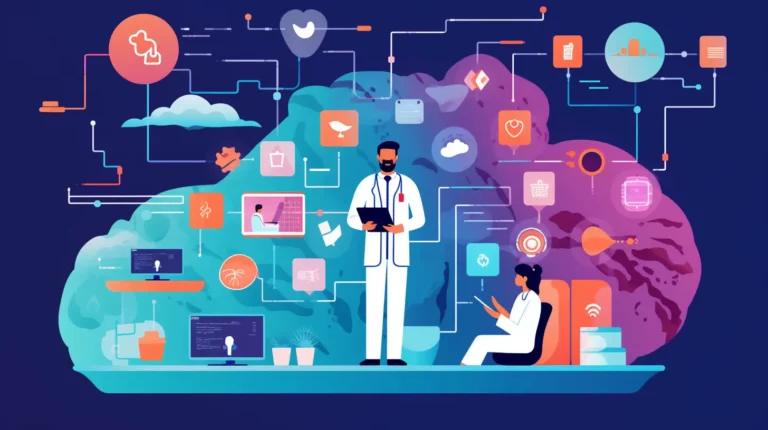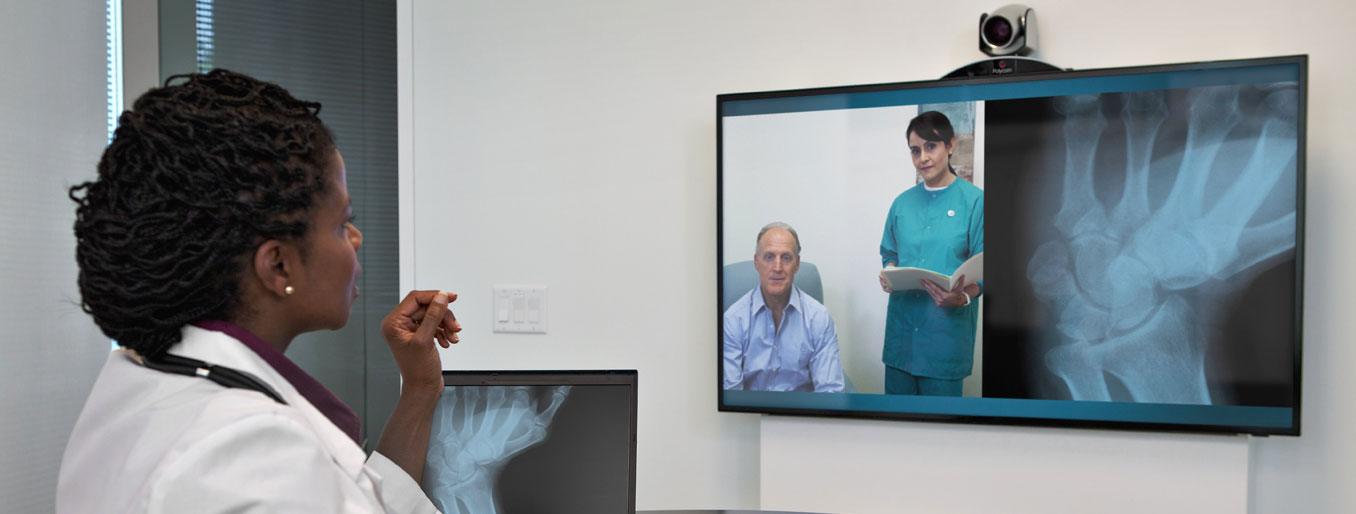The patient journey encompasses the various stages and touchpoints a person encounters while receiving healthcare, from the onset of symptoms to long-term care and recovery. As our world becomes increasingly digitized, artificial intelligence (AI) and chatbots are playing a crucial role in transforming the way patients interact with the healthcare system. ChatGPT, an advanced AI-powered chatbot developed by OpenAI, has the potential to significantly impact the patient journey by providing personalized, accessible, and instant information. Here we delve into the potential impact that chatbots like ChatGPT will have on the patient journey and how AI chatbots are expected to revolutionize patient-centered care.
The Role of AI ChatBots in Symptom Onset and Awareness
Assisting users in understanding their symptoms
One of the first steps in the patient journey is recognizing and understanding the symptoms they’re experiencing. Symptom Checkers like Ada have been around for quite some time and are quite popular, but have never really gone mainstream. On the other hand, everyone googles their symptoms. According to a Pew Research Center report, 80% of internet users in the US, or about 93 million Americans, have searched for health-related information online.
AI ChatBots are expected to bring about a drastic shift in this stage of the patient journey.
Patients can be expected to use AI Bots like ChatGPT to understand their symptoms and these bots do an admirable job compared to traditional search engines in helping patients understand their symptoms.
Providing general information about potential causes and conditions
When a user presents their symptoms to ChatGPT, the chatbot can provide an overview of potential causes and common conditions associated with those symptoms. While ChatGPT does sprinkle in frequent recommendations about the need to consult with a doctor, it does a terrific job at helping patients understand a possible list of conditions they might be looking at. This information can serve as a starting point for users to learn more about their symptoms and take appropriate action.
Guiding users on when to seek professional medical help
While ChatGPT cannot provide medical diagnoses, it can offer general guidance on when it’s necessary to consult a healthcare professional. Most medical websites already provide guidance on when to contact a doctor. AI Bots however help patients navigate the symptoms and possible conditions and hence their guidance on timing is much more relevant and therefore likely to have a significant impact on patient behavior.
Information Seeking and Decision-making with ChatGPT
Today patients rely on Google to help them navigate their health concerns and make informed decisions. Patients navigate from site to site and try to make sense of the disconnected information, without having the medical training to make sense of what they reading. ChatGPT here is a game changer as it helps answer patient questions directly in simple language. The AI chatbot can answer questions, provide trustworthy resources, making it easier for them to navigate the wealth of health information available online. Hallucinations are a known problem in the language models that power the AI Bots, but this is an area that is actively being addressed and can be expected to get better over time.
Armed with the information gathered from ChatGPT and other reliable sources, users can make more informed decisions about their healthcare. The chatbot can help users weigh the pros and cons of different treatment options, provide information on potential side effects, and suggest lifestyle modifications that may aid in their recovery.
Taking advantage of the changes in provider discovery
As more patients turn to AI chatbots like ChatGPT as an alternative to traditional web searches, there is a huge opportunity for healthcare providers to connect with patients through these platforms. ChatBots, when empowered with browsing capabilities, can help match patients to healthcare providers who meet their specific needs by offering personalized recommendations based on factors such as location, specialty, and insurance compatibility.
To capitalize on this opportunity, healthcare providers should take proactive steps to ensure their visibility on AI chatbots like ChatGPT. This involves providing accurate and up-to-date information about their practice, services, and contact details, as well as optimizing their online presence for AI-driven platforms.
In addition to helping users find suitable healthcare providers, ChatGPT can also assist in navigating the often complex world of insurance options. The chatbot can provide general guidance on selecting insurance plans, understanding coverage details, and managing out-of-pocket expenses. This can be particularly beneficial for users who are overwhelmed by the multitude of insurance choices available to them.
Preparing for Consultations and Diagnosis with ChatGPT
Preparing for appointments
Patients will likely rely on ChatGPT to prepare for their provider appointments. Patients will use ChatGPT to helping them prepare for upcoming appointments with healthcare providers. The chatbot can assist users in organizing their medical history and identifying any concerns or symptoms they want to discuss. Additionally, patients are likely to use ChatGPT to suggest relevant questions to ask during the consultation.
Empowering patients to take an active role in their care
Patients will also use AIBots to empower themselves to play a more active role in their care. They will like rely on ChatGPT to interpret their test results, answer questions about their diagnosis, medications and ongoing symptoms.ChatGPT will patients feel more confident in their ability to manage their care and make informed decisions in collaboration with their healthcare providers.
Post Diagnosis and Treatment
- Patients will rely on ChatGPT to help them understand the potential benefits, risks, and expected outcomes of the treatment and care plans.
- ChatGPT will also be used by patients to understand the side effects of treatments their medications, and medication adherence.
- Post diagnosis and treatment, ChatGPT will also play a role in helping patients identify local resources and support systems that may aid in their recovery. This can include connecting patients with support groups, therapists, or community programs that address their specific needs and challenges.
- Patients will also likely use ChatGPT and similar chatbots as a source of support, motivation and guidance through their healthcare journey.
Summary
In conclusion, AI chatbots like ChatGPT and Google Bard will drastically alter the current established workflows in the healthcare industry. Patients will increasingly use them at every stage of the patient journey to aid in their decision making. And providers will need to prepare to adjust to the new norm where AI will make its presence felt in aspects of their daily patient interactions and also adjust for the coming changes in the established provider discovery channels.




